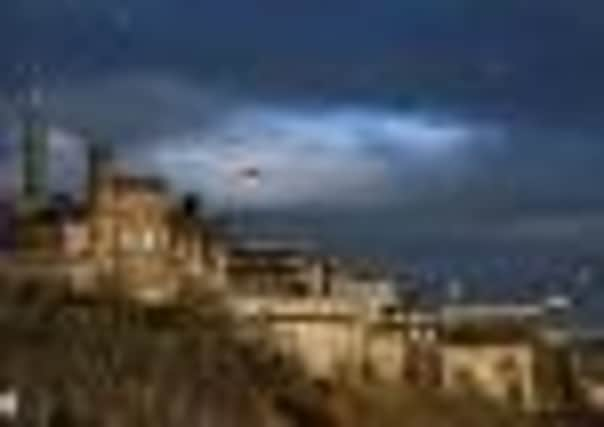EU cash blunders cost Scots £100m


Public spending watchdog Audit Scotland hit out at the lack of “oversight and controls” in the system, saying: “The buck stops with the Scottish Government.”
The surprise bill has prompted concerns over the knock-on effect on public services at a time of spending cuts.
Advertisement
Hide AdAdvertisement
Hide AdEuropean Commission (EC) auditors found Scottish officials had wrongly claimed subsidies for which the country was not eligible and demanded reimbursement.
A first tranche of £51m has been repaid over the past three years – including more than £30 million in 2010-11.
Auditor General Robert Black told MSPs on the public audit committee that a further £51m of agriculture cash had to be repaid in the years to come. “I consider that all of these repayments represent a loss of European funding to Scotland,” he said. “They arise because Scottish Government procedures have not been meeting the standards required to ensure that the use of funds complied fully with European legislation.”
The money will be paid back from Scottish Government coffers and individual recipients of European funding over the years will not be forced to hand back any cash.
The delay between the problems being identified and the repayments being made is due to the time taken by the EC to carry out its own investigation, as well as subsequent negotiations with Scottish officials over the amount to be repaid. Some payments date back date to 1994, but most are from 2000 onwards.
Mr Black said “important changes” had been made to the way the Scottish Government handled funding applications since the problems emerged and that it had to “learn the lessons” of previous mistakes.
Mark Taylor, assistant director, audit services group, at the watchdog said it planned to carry out further work to establish if improvements had been made. But he added: “I think it’s fair to say that we remain to be convinced in some areas.”
Between 2000 and 2006, about 3.6 per cent of the £1 billion received by Scotland from European structural funds was paid back. Mr Taylor said: “It’s a relatively small proportion, but still a significant absolute amount.”
Advertisement
Hide AdAdvertisement
Hide AdThe funds involved support spending on economic development, farming, the rural economy and fisheries.
The biggest “correction” was in European Social Fund subsidies covering the period 2000-2006, with further “outstanding issues” in the next phase covering 2007 to 2013.
There have been problems with repayments in England and Northern Ireland, and public audit committee convener Hugh Henry questioned how much of the problem was a failure on the part of Scottish officials and how much of it was down to Europe. “It does seem strange that these problems have built up over so many years and yet nothing seems to have been done,” he said.
Mr Black said European regulations “set out clearly” the criteria for funding assistance.
“There’s no doubt that the controls which the European Commission expect to see in place are quite testing,” he said.
“There has been clear evidence that the controls being operated within Scotland don’t really measure up to that standard.
“It’s unfortunate that controls weren’t as strong as they should have been to comply with European requirements.”
Among the problems identified by European auditors were that Scotland had applied for agriculture subsidies in areas of land that had bracken and lochs, which don’t qualify for subsidy. Scottish Government officials, as well as those involved with individual programmes, shared responsibility, Mr Taylor said.
Advertisement
Hide AdAdvertisement
Hide AdBut he added: “The buck stops with the Scottish Government in relation to that, and that’s fully understood.”
Scottish Conservative deputy leader Murdo Fraser voiced concern about the knock-on effect on Scotland’s finances.
“The loss of more than £100m from the Scottish budget at the present time will potentially have a very serious impact on public services,” he said.
“It must be a matter of great concern that, due to accounting errors, we are having to pay such a large amount to the EU.
“We need to be establish whether the Scottish Government has taken all the necessary steps to minimise the sums that are expected to be repaid and to ensure that processes have been amended so there can be no repeat of these mistakes.”
A Scottish Government spokeswoman insisted last night that improvements had been made that will avoid a repeat in future.
“The issues previously raised by the European Commission, which relate to systems and spending that largely pre-date this administration, have been fully acted upon,” she said.
“We are satisfied that our management arrangements are now both appropriate to safeguard public funds and proportionate to allow proper investment to support growth in the rural economy.
Advertisement
Hide AdAdvertisement
Hide Ad“We will continue our dialogue with the commission and keep pressing for simpler and more proportionate arrangements in future.”
The £51m which has already been repaid by the Scottish Government includes £31m that was handed back in the 2010-11 financial year.
This is on top of £14m which had been reimbursed in the previous year and £6m which has already been paid back in the current 2011-12 financial year. All of this money relates to the findings of EC audits undertaken between 2003 and 2005 and covering the 2000-2006 programmes.
The Scottish Government has also set aside £51m to pay back to the European Agricultural Guarantee Fund after the commission’s audits carried out between 2005 and 2009 identified further concerns over the procedures.
The report by the Auditor General yesterday also found that about £137.6m had been withheld from Scotland’s share of European structural funding programmes after evidence of “serious deficiencies” emerged in the application process.
This came after an internal Scottish Government review established “insufficient prepayment” checks had been carried out on applications. These checks were eventually carried out earlier this year and the funding payments were resumed in August.